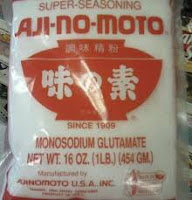Introduction
Recently, a testing centre in our country came out with
damning evidence about the presence of monosodium glutamate in large amounts and
lead beyond permissible limit in the fast food samples made by Nestle, a multinational
company from Switzerland. As soon as the evidence became available in the public
domain, different states in our country began testing for these chemicals in
the samples pooled from their respective territories. Many have reported the adulteration
whereas some other states reported negative in samples. This has led to the
countrywide ban on the food items produced by the Nestle Company in India. In
this scenario, should we include the testing of other food available in the Hotel
Industry where the hotels are vying each other to make tasty food for the customers.
Reason for Such Widespread Ban
The studies in the past have indicated that lead cannot be
included in the food items as it might hamper some of the metabolic activities
in the body, leading to many complications, including multi-organ failures. On
the other hand, the presence of monosodium glutamate (MSG) beyond permissible
limit leads to some complications in the nervous system. In some people, it has
shown up as Chinese restaurant syndrome. In this condition, people usually
experience anything in between heart palpitation and numbness. These
side-effects are generally temporary. The Food and Drug Administration (FDA)
has renamed it as MSG Syndrome Complex. The neurosurgeons say that in large
amounts the monosodium glutamate causes over excitation of neural cells. Most
often the over excitation causes irreversible damages to the cells or their
death. This is the reason why the sachets of this compound contain a statutory
warning. This salt should not be used by infants and expectant mothers.
Rampant Use of this Chemical (MSG)
The monosodium glutamate acts as a flavour enhancer and food
additive that improves the shelf life of food items. Hence, it is permitted to
use MSG in fast food and other food items to increase its taste in small
amounts. But in the era of cut-throat competition, hotels are liberally making
use of this salt to enhance the taste. The legally permissible amount is
120 milligram per kilogram of human body weight. Nobody seems to have any care
for this ratio. People want to earn some quick money by providing tasty and
fresh food with a required aroma to entice the human taste buds.
Overdose of MSG in Food
In a recent interview, the country cooks in the hotels of
Kerala confided in private that MSG is liberally added in every food item that
is being sold in the country. It does
not matter whether you eat chicken biriyani or taste some sambar-chutney in a
hotel. You can taste MSG in every food item ordered across the counter in a
hotel. So, are we eating toxic and unsafe food items from eateries across our streets?
Unfortunately, the answer seems to be yes. Even at homes, some people use this
chemical to bring freshness and taste. Hence, it is quite easily available in
all provision shops. Another catch here is that the hotels some time
re-circulate used food after mixing with this chemical to make it taste and
smell like a freshly made one.










0 Post a Comment:
Post a Comment